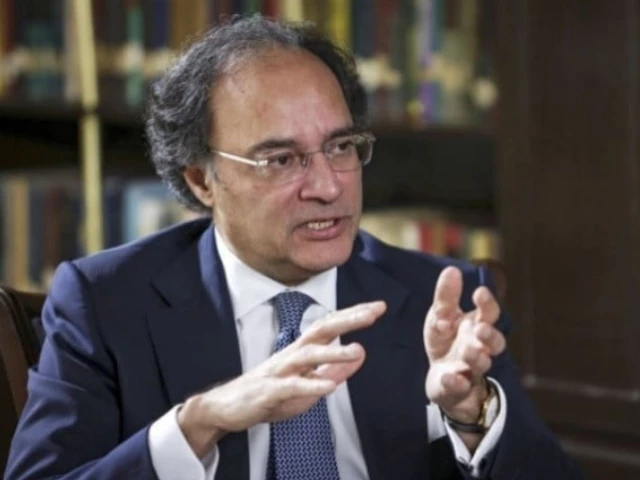Pakistan has reached a staff-level agreement with the International Monetary Fund (IMF) for its second loan review, and the board is expected to approve the next tranche in early December, Finance Minister Muhammad Aurangzeb said on Wednesday. Speaking at the ninth Future Summit in Karachi, he highlighted the government’s shift towards an investment-driven economic model, led primarily by the private sector.
Aurangzeb said investor confidence was strengthening, adding: “Our direction is right.” He confirmed that Google had decided to open an office in Pakistan and was considering the country as an export hub. A blockchain center has also been established at the Lahore University of Management Sciences (LUMS) as part of a broader focus on emerging technologies.
The minister said tax reforms had progressed steadily for 18 months, and efforts were being made to broaden the tax base using artificial intelligence. “The sugar sector is now digitalized and the cigarette sector will follow,” he said, adding that 900,000 new taxpayers have registered.
Read: Google begins local assembly of Chromebook in Pakistan
He also highlighted Egypt’s interest in adopting Pakistan’s reform model, while the privatization of Pakistan International Airlines (PIA) was on track to be completed by the end of the year. The UAE’s recent investment in a Pakistani bank marked “the beginning of a new era,” Aurangzeb said.
On the other hand, Federal Minister Musadik Malik emphasized the need for equal opportunities and fair competition in Pakistan’s economic landscape. At the same summit, he said sustainable development depended on breaking the dominance of elites and fostering a competitive economy driven by innovation.
“The aspirations of our youth are simple,” Malik said. “They want good jobs, safe neighborhoods and basic services.” He argued that macroeconomic figures such as GDP growth had little relevance to the average Pakistani, who was more concerned about education, healthcare, pollution and urban flooding.
Malik warned that environmental challenges, including smog in Lahore and flooding in Karachi, were shortening life expectancy by up to eight years. “The butterflies and the fireflies are gone; everything is ruined,” he said, calling for urgent reforms in healthcare, education and local governance. He highlighted high unemployment among young doctors and a lack of primary health care facilities, and said global models showed those problems could be addressed.
Read more: Pakistan likely to receive $1.2 billion tranche from IMF
The minister stated that innovation requires competition and that protectionist policies and preferential access to energy for certain sectors hinder exports and foreign investment. “If the elite dominate society, how will businesses grow?” he asked, urging an end to policymaking based on privilege.
Aurangzeb and Malik stressed that Pakistan’s future economic resilience depended on competitiveness, youth empowerment and effective use of external finance, including for climate resilience. Both highlighted the importance of focusing on emerging sectors, technology and innovation to build a sustainable and inclusive economic model.




